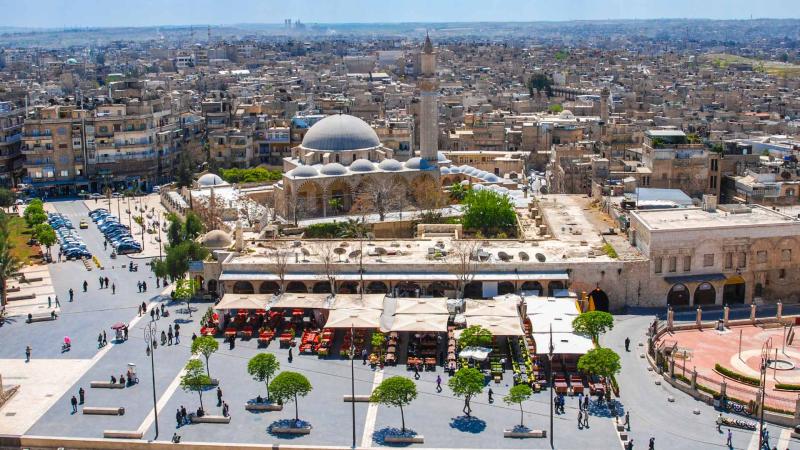Nasser Golzari, Senior Lecturer and Course Leader for Architecture MA, has written an expert story for G-STIC on urban inclusion in the Middle East as part of their online exhibition ‘HABITAT: Embracing Change in the Post-2030 Future’.

The online exhibition demonstrates how the Sustainable Development Goals (SDGs) can be achieved by 2030 and what needs to happen beyond that milestone, and it also features the sustainability-related work of 17 multidisciplinary experts from 12 countries. They share stories from their regions, demonstrating how they can be applied in a global context and give recommendations about how the SDGs can be a vital part of a prosperous future for the planet and its people beyond 2030.
Dr Golzari’s story centres around SDG16 which aims to ‘promote peaceful and inclusive societies for sustainable development, provide access to justice for all and build effective, accountable and inclusive institutions at all levels’.
In his piece, he writes that civil war in the Middle East, along with market driven globalisation, have caused communities to become fragmented and segregated, and says urban planners and architects can play a role in making them more inclusive as per SDG16.
Speaking about the importance of considering socio-cultural inclusion in the urban planning process, Dr Golzari said: “While some ancient cities in Iraq, Syria, Libya and Lebanon are burning and being destroyed, global private companies are employing design teams to plan their reconstruction on a massive scale. Genuine sustainable redevelopment must not be limited to discussions about renewable energy only; sustainability in any urban development is only possible when socio-cultural inclusion is considered, and this means mixed-use designs and access to resources for all.
“Close consultation with a range of communities, age groups and genders should inform sustainable development. At the same time, architects and urban planners must urge the protection of historic civic traces, the identity of a city, and its socio-cultural practices.”
Dr Golzari previously spoke at an event hosted by Westminster’s Faculty of Architecture and Built Environment (predecessor to the School of Architecture + Cities) for the first UK HABITAT lecture which enabled discussions and speeches from architecture experts covering issues such as climate change and understanding how to make the best use of local natural resources while respecting our environment.
The event discussed the launch of a publication entitled ‘Habitat: Vernacular Architecture for a Changing Planet’ edited by architect Sandra Piesik and published by Thames & Hudson, which is a large format publication gathering together an international team of more than one hundred leading experts across a diverse range of disciplines to examine what the traditions of vernacular architecture and its regional craftspeople around the world can teach us about creating a more sustainable future. The book and the event were covered in a review in The Guardian at the time.
Read Dr Golzari’s expert story in full on G-STIC’s website.


